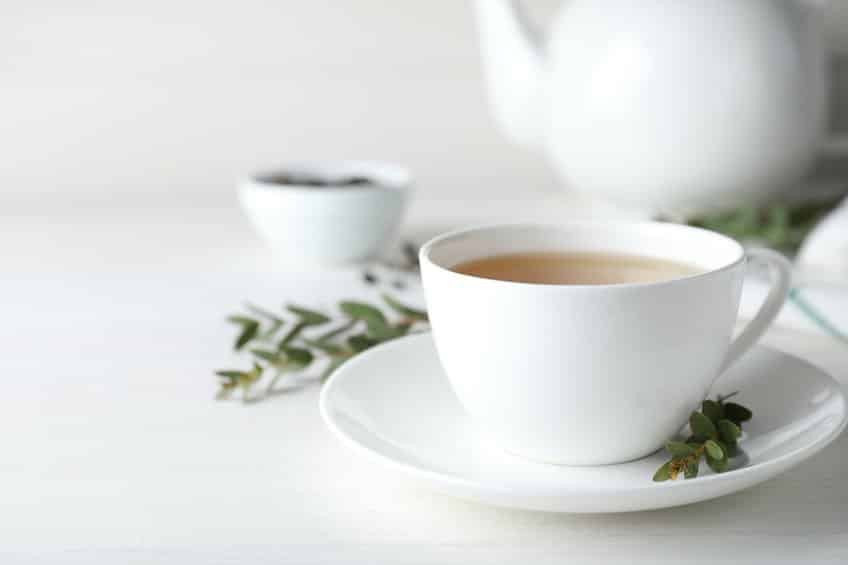The Skinny
The rivalry between coffee and tea is long-lived. In recent years, coffee has reigned as the beverage of choice in the U.S. But no matter how many Starbucks and Dunkin commercials are played and new shops are built, tea prevails worldwide. The different origins and variations of tea makes it one of the most versatile beverages, not mention it’s suitable when served both hot and cold. With the beverage’s versality, comes a great number of health benefits that are rooted in each version of tea. WellWell has collected a short list of just a few of the most popular options and their perspective therapeutic perks.
The Slate
Christopher Ochner, PhD., a research scientist in nutrition, saying that green tea is “the healthiest thing I can think of to drink” might be enough to understand the natural benefits of green tea. One of the many pluses for green tea is its key antioxidant, catechin. It helps prevent cell damage in the body. Aside from green tea being a popular source for caffeine, there are many health claims that say green tea also can be instrumental in increasing metabolism and overall fat burning. That’s not to say that drinking an entire cup of green tea will cause the fat to go away or prevent diseases without a proper diet and other healthy lifestyle choices.
Black Tea
Similar to other variations of tea on this list, black tea is an excellent substitute for coffee or any other energy drink since it boasts being low in calories and sugar. Given the number of U.S. deaths to heart disease, Americans might be interested in drinking more black tea since the beverage has shown long-terms benefits in reducing blood pressure and the risk of various cardiovascular disorders. Additionally, black tea has proved to be helpful in helping those with diabetes. The unsweetened drink helps regulate blood glucose levels and improve the body’s ability to metabolize sugar, according to a report from the International Journal of Health Sciences.
Like teas in general, there is a variety of herbal teas. Ginger tea, one of the more popular herbal offerings, is known to be bring loads of treatment and other nutritional benefits to the table. With its base being the ginger plant, ginger tea is commonly used to alleviate headaches, menstrual cramps, sore muscles and other types of pain. This pain treatment is evidence of a long tradition of using ginger to reduce inflammation and serves as a body detox. Not enough? Ginger tea is also beneficial in treating motion sickness, nausea, regulating blood pressure and optimizing heart health.
A Chinese tradition, oolong tea is not as common as other teas. Despite not being well known outside of China, it offers benefits similar to green and black teas. This shouldn’t be surprising since they are all made from the same plant. Healthline, in fact, reports that one cup of oolong tea includes about 36mg of caffeine; essential vitamins and minerals such as potassium and fluoride; and an amino acid called theanine that is responsible for the tea’s relaxing effect. While caffeine can raise blood pressure, a recent study found that oolong tea can substantially lower the risk of heart disease and stroke.
Chamomile tea, an herbal beverage, has been used for decades and centuries to ease and reduce headaches, fever and insomnia, among other issues. Although clinical evidence is wanting about chamomile tea’s role as a true insomnia stopper, it remains many people’s go-to drink for better sleep. Similar to other herbal teas, chamomile is a natural answer for those experiencing menstrual cramps, suffering from inflammation or looking to keep blood sugar levels under control.
Eyes Up
What’s your go-to tea? Let us know at info@wellwellusa.com











